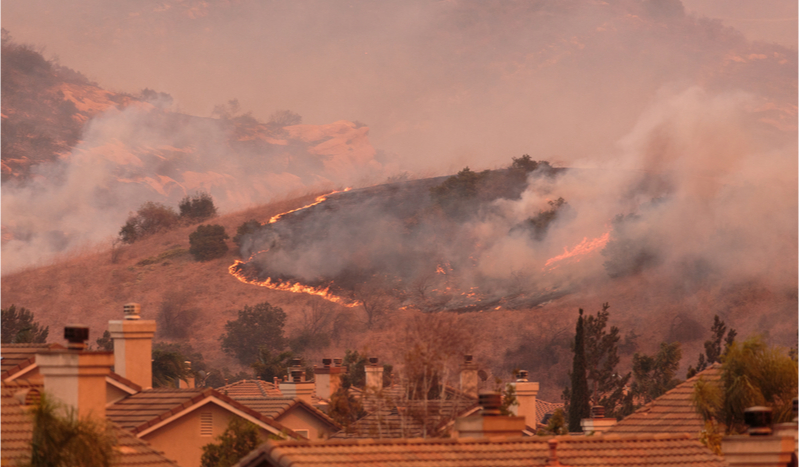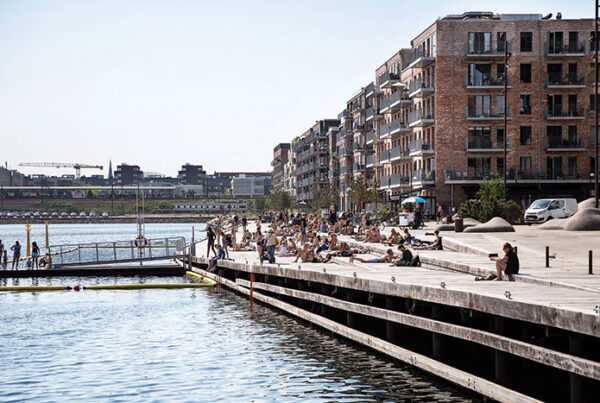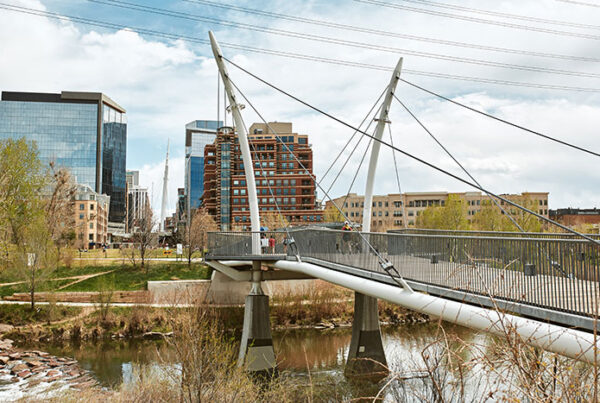The latest report from the United Nations’ Intergovernmental Panel on Climate Change confirms that the last five years have been the hottest since 1850, and that “it is unequivocal that human influence has warmed the atmosphere, oceans and land.” As the built environment accounts for nearly 40 percent of annual global carbon emissions, action needs to be taken to prevent scenarios where global temperatures rise by more than 1.5 degrees Celsius (2.7 degrees Fahrenheit) by 2050.
UN Secretary-General António Guterres called the report “a code red for humanity,” noting that “global heating is affecting every region on Earth, with many of the changes becoming irreversible.”
This report goes farther than any previous IPCC report in placing the blame for global warming squarely on human greenhouse gas emissions. It is no longer a question of “natural versus human-caused” climate change. The warming is also happening even faster than scientists previously thought.
“This IPCC report reinforces the real and imminent risk that the climate crisis brings to our industry. Given the need and growing importance of climate mitigation and adaptation globally, ULI is focused on accelerating real estate’s transformation toward a net-zero-carbon built environment, and helping cities become more resilient to the impact of climate change,” said Billy Grayson, executive vice president for the ULI Center for Sustainability and Economic Performance.
Other key findings in the report:
- Climate change is intensifying the water cycle. This brings more intense rainfall and associated flooding, as well as more intense drought in many regions.
- Climate change is affecting rainfall patterns. In high latitudes, precipitation is likely to increase, while it is projected to decrease over large parts of the subtropics. Changes to monsoon precipitation are expected, which will vary by region.
- Coastal areas will see continued sea level rise throughout the 21st century, contributing to more frequent and severe coastal flooding in low-lying areas and coastal erosion. Extreme sea level events that previously occurred once in 100 years could happen every year by the end of this century.
- Further warming will amplify permafrost thawing, and the loss of seasonal snow cover, melting of glaciers and ice sheets, and loss of summer Arctic sea ice.
- Changes to the ocean, including warming, more frequent marine heatwaves, ocean acidification, and reduced oxygen levels have been clearly linked to human influence. These changes affect both ocean ecosystems and the people that rely on them, and they will continue throughout at least the rest of this century.
- For cities, some aspects of climate change may be amplified, including heat (since urban areas are usually warmer than their surroundings), flooding from heavy precipitation events, and sea level rise in coastal cities.
For further research and analysis, please see these six key ULI reports on climate mitigation:



